Hashtags are ubiquitous. The 10 most influential hashtags on Twitter are:
10. #GivingTuesday
9. #YesAllWomen
8. #PrayforJapan
7. #BringBackOurGirls
6. #IceBucketChallenge
5. #Sandy
4. #IndyRef
3. #BlackLivesMatter
2. #LoveWins
1. #Ferguson
(Washington Post, “These 10 Twitter hashtags changed the way we talk about social issues,” March 21, 2016)
Fan, athletes, entertainers, political candidates, and just plain folks are “hashtagging” on social media. So too employees whose social media posts are often accessible to coworkers. #tensionalert ? #OMGcallHR? #PCPolice?
Employee A may see something that Employee B posted on Instagram over the weekend, and be offended to the point where it impacts Employee A’s and B’s work relationship. Or, a customer could see what your employees post and question whether such views reflect the company as a whole. #uhoh
Muzzles won’t work but clear guidance might.
But, any policies will be effective only if legal.
First, employers must be aware of Section 7 of the National Labor Relations Act (NLRA), which expressly allows employees’ communications about wages, hours and other terms or conditions of employment, in and out of the workplace. See Hispanics United of Buffalo, Inc. and Carlos Ortiz. Case No. 03–CA–027872 (Dec. 27, 2012) (termination of 5 employees held illegal because their comments posted on Facebook are protected in the same manner and to the same extent as comments made at the “water cooler.”); Kaiser Engineers, 213 NLRB 752 (1974), affirmed in Kaiser Engineers v. N.L.R.B., 538 F.2d 1379 (9th Cir. 1976) (employee terminated for writing to legislators was a violation of Section 7: “the reason for the letter was a fear on the part of the Society [of Engineers of which the employee was a part] and its members that relaxing immigration laws to permit increased importation of alien engineers might affect the job security of the members of the Society and their fellow engineers….”).
Second, while private employers may otherwise limit political discussions in the workplace, the same is not true for communications outside the workplace. Multiple states prohibit discrimination or retaliation against employees for engaging in lawful, off-duty conduct including engaging in particular political or social activities or having certain political affiliations – see prior blog post here.
Third, employers must be consistent in applying their policies and practices related to social activism affecting employees in and out of the workplace. This, however, is more difficult than it sounds. What exactly are employers expected to do when confronting potentially offensive but lawful speech or other conduct?
- What if one employee (African-American) adds #blacklivesmatter to her email signature and complains that her co-workers (white) are harassing her by adding #alllivesmatter to theirs?
Here, subject to your policies and past practices, it is okay to ask both employees to remove the hashtags from their email signatures.
- Would the solution be different if this call-and-response occurred on social media?
Yes – requesting employees to remove social or political commentary from their work email signature blocks is not the same as requesting employees to remove such commentary from their private social media pages.
When a complaint by an employee is premised on another employee’s social media posts, companies should follow the same harassment investigation protocols as would be followed for such statements made in other contexts. Here, the NLRB may be right: the water cooler conversations of the 20th century are the social media conversations of the 21st century.
Even if the outcome of the investigation does not reveal harassment or discrimination, this may be a “teachable moment” to remind employees that: (1) they are free to defriend or unsubscribe if they disagree with or do not want to see certain social media posts; (2) their personal opinions may be viewed by coworkers; (3) it should be clear that their personal opinions are just that – their personal opinions (rather than the Company’s opinion); and (4) any social media posts should not occur during working hours.
- What if a discussion between coworkers on the Presidential election raises Trump’s ban on Muslims and your Muslim employees are offended?
Like any other religious discrimination or harassment claim, you should conduct a thorough, prompt and fair investigation. See e.g., Makhayesh v. Great Lakes Steel, No. 91-108394-CZ (Mich. Ct. App. Apr. 10, 1995) (per curiam) (unpublished opinion) (court reversed a grant of summary judgment for the employer, and held that the evidence was sufficient to let the harassment claims by Muslim employee to go to trial based in part on direct, personal insults, but also in part on coworkers comments suggesting that the US “nuke Iraq and Syria” and “go back [to Libya] and wipe them off the face of the earth.”)
- What happens if this discussion occurs in a group discussion on social media?
Same song; different verse. You will still investigate as with any other report of harassment. Context may dictate whether this is either severe or persuasive; context may also dictate whether this is employment-related and what the possible “prompt remedial action” should be.
- Can you fire an employee for offensive remarks?
Maybe. Context matters. A purely political statement (e.g., “Make America Great Again”) isn’t racial harassment; thus terminating for that is terminating for supporting a political candidate and thus often a violation of state law. A more obviously harassing statement (e.g., “When Mexico sends its people, they’re not sending their best….They’re sending people that have lots of problems, and they’re bringing those problems with us. They’re bringing drugs. They’re bringing crime. They’re rapists.”) does not grant immunity from Title VII liability because it is a direct quote from a Presidential candidate. Harassment cases are all difficult to investigate and address; social media merely complicates the already difficult.
- Is it easier or harder to fire if it is a manager making these communications?
Absolutely easier. Managers never take off their supervisory hats; their conduct and statements follow their presence into work like a shadow; your organization will likely be held legally accountable for their biases; and those positions are outside the reach of the NLRA.
- What if one of your customers finds an employee’s social media post offensive and inquires as to whether it reflects the Company’s position, or worse, threatens to stop doing business with you?
Advise the customer that our employees’ personal social media posts and opinions are not reflective of the Company’s position whatsoever. Remind the employee that his/her posts on social media may not be on behalf of the Company.

